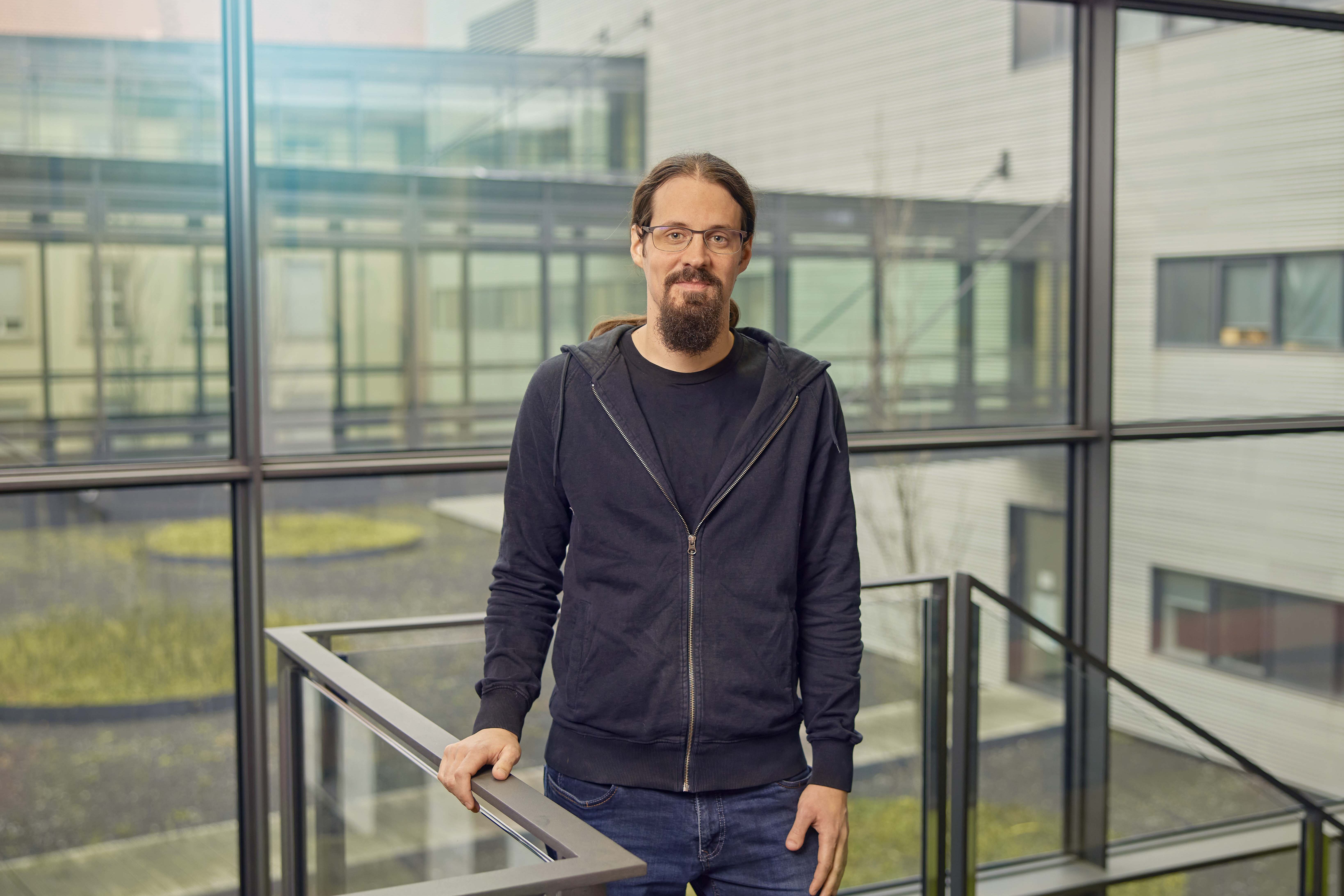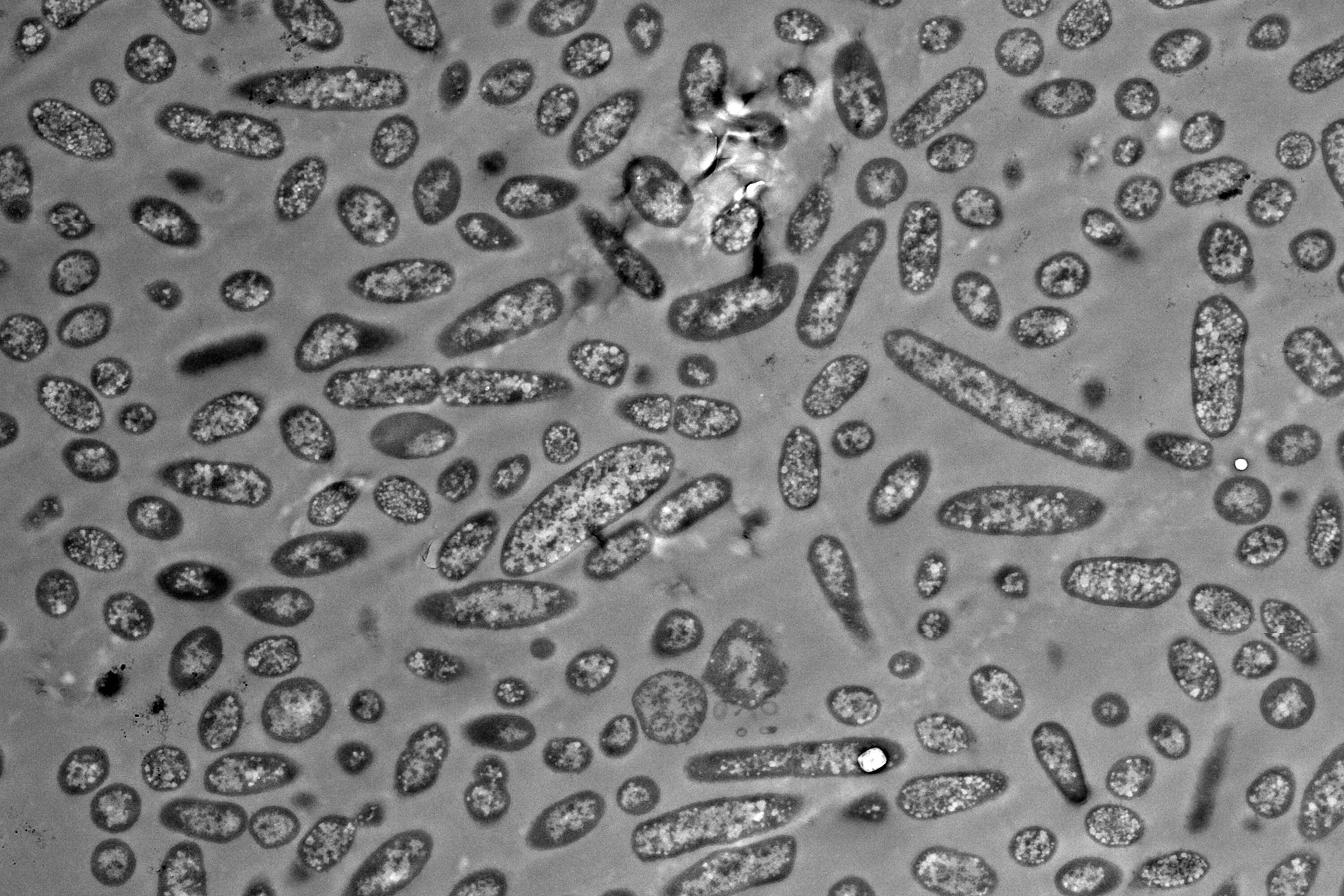Infections caused by antibiotic-resistant bacteria pose a serious threat to global health. Consequently, there is an urgent need for new antibacterial compounds. One promising avenue of research is bacteriophages, commonly known as phages, which are viruses that infect bacteria. They attach to a bacterium and inject their genetic material into it. This allows them to hijack the cell machinery and transform the bacterium into a “phage factory”. The bacterium then produces new phages until the infected microbe bursts and releases them. Each new phage can infect other bacteria, creating a chain reaction that destroys all the microbes.
These “bacteria eaters”—a meaning derived from the original Greek term “bacteriophage”—are the focus of Jens Hör's research at the Helmholtz Institute for RNA-based Infection Research (HIRI) in Würzburg. The institute is a site of the Braunschweig Helmholtz Centre for Infection Research (HZI) in cooperation with the Julius-Maximilians-Universität Würzburg (JMU). Hör has now received a Starting Grant of 1.5 million euros from the European Research Council (ERC) for his research project “RIBO-PHAGE”.
“The rising antibiotic resistance is one of the most pressing challenges of our time. This makes it all the more gratifying that the ERC awarded a Starting Grant to junior professor Jens Hör. Thanks to this prestigious funding award, he will be able to continue his pioneering research at the highest level,” says Jörg Vogel, Managing Director of the HIRI.
“Phages are much more than fascinating biological tools—they have the potential to become a game changer in everyday clinical practice, especially in the fight against multi-resistant bacteria. To exploit this potential, we need research like that conducted by Jens Hör at our HZI institute HIRI in Würzburg. ERC grants are among the most important and prestigious sources of funding in the international scientific community and create the freedom to pursue such innovative approaches, thereby laying the foundation for future therapies,” states Josef Penninger, Scientific Director of the HZI. “I warmly congratulate Jens Hör on this great success.”
Focus on RNA phages
The therapeutic use of phages dates back to the early 20th century. Nevertheless, it gradually faded into obscurity due to the development and widespread success of conventional antibiotics. Recent discoveries have brought phages back into the spotlight, highlighting their tremendous potential in basic and applied research. For example, phage research has shown that certain aspects of the human innate immune system can be traced back to bacterial defense mechanisms. In addition, researchers made significant progress in developing phages as a therapeutic agent for treating infections caused by multi-resistant bacteria.
However, this renaissance neglected an understudied group: phages with ribonucleic acid (RNA) as their genetic material. “Their biology is fundamentally different from that of DNA phages, which are based on deoxyribonucleic acid (DNA). To start, their appearance differs: While DNA phages have a head and a tail, RNA phages consist only of a head,” explains Hör. Currently, only very few RNA phages have been discovered. Through his ERC-funded project, Hör aims to further our understanding of this unique group of phages.
To reproduce efficiently, RNA phages use unique regulatory mechanisms that determine which proteins are produced and when. Hosts—bacteria infected by phages—have their own defense systems to stop the intruders. These processes are carefully coordinated. The goal of the phages is to reproduce as quickly as possible. The host cell, on the other hand, aims to ward off the phages to protect the bacterial population.
“Understanding these mechanisms of action facilitates the effective use of RNA phages as therapeutic agents. It also bears the potential to discover entirely new biotechnological tools,” says Jens Hör. “In my RIBO-PHAGE project, I want to elucidate the unique lifestyle of RNA phages and provide a detailed picture of the molecular processes involved in RNA phage infection.” Hör is particularly interested in deciphering how RNA phages efficiently regulate their replication and which host factors they hijack in the process. In addition, he intends to shed more light on how bacteria defend themselves against RNA phage infections. He will use, amongst others, RNA phages from the Fiersviridae and Cystoviridae families, which infect bacteria of the genera Escherichia and Pseudomonas, as model systems.
Jens Hör is already the fifth HIRI group leader to receive ERC funding. Jörg Vogel concludes that “the successful acquisition of this new grant is not only impressive proof of the HIRI's outstanding position in the international research landscape. This also shows that phage research has reached a critical mass, making it an integral part of future medicine.”





